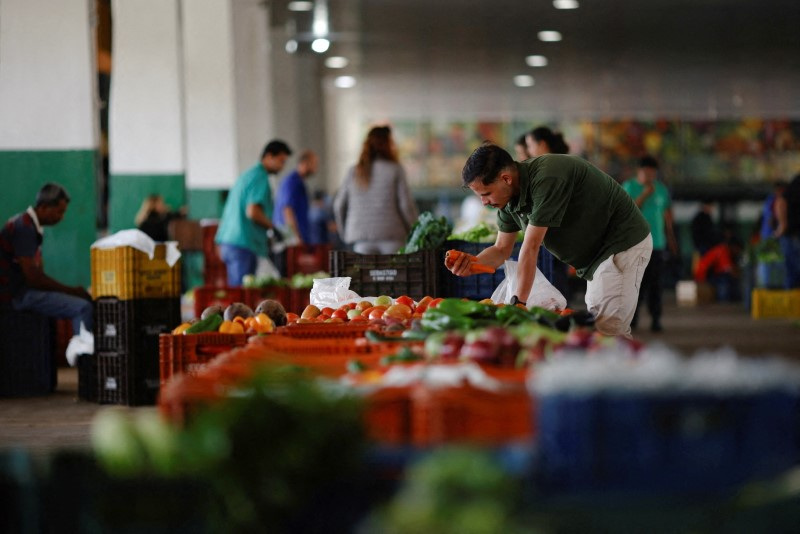Brazil inflation speeds up in July as central bank vows ‘caution’
2024.08.09 10:25
By Luana Maria Benedito
SAO PAULO (Reuters) – Consumer prices came in slightly above expectations in July, pushed up by higher gasoline and air ticket costs, adding to monetary policy uncertainties after the central bank said it would raise interest rates if needed to control inflation.
Prices in Latin America’s largest economy were up 0.38% last month, statistics agency IBGE said on Friday, accelerating from the 0.21% increase reported in June and exceeding economists’ forecasts of a 0.35% monthly rise in a Reuters poll.
They rose 4.50% in the 12 months through July, IBGE said, up from 4.23% in June and slightly above the 4.47% projected in the Reuters poll.
Annual inflation is now at the upper limit of the tolerance band for the central bank’s target, which currently stands at 3%, plus or minus 1.5 percentage points.
“Overall, this was a poor start to the quarter due to temporary shocks,” said Andres Abadia, chief Latin America economist at Pantheon Macroeconomics. “But we expect these pressures to ease soon, keeping underlying inflation pressures under control over the next few months.”
The latest inflation data comes after Brazil’s central bank said in its policy meeting minutes on Tuesday that it won’t hesitate to raise interest rates if necessary to bring inflation down to its target.
Capital Economics’ deputy chief emerging markets economist Jason Tuvey said the fresh consumer prices figures, driven by a pickup in underlying core services inflation, will do little to quell the hawkishness of policymakers.
“But, with the real having recovered some lost ground in recent days, we still think an interest rate hike is unlikely.”
Brazil’s currency traded around 5.50 per dollar on Friday, paring some recent losses after it weakened past 5.80 per greenback earlier this month. Nevertheless, the Brazilian real is still down 12% so far in 2024.
Central bank director Gabriel Galipolo said on Thursday that the bank is monitoring how the foreign exchange moves impact inflation, but argued it would be a mistake to establish a “mechanical” relationship between them and monetary policy.
According to IBGE, the upward surprise in July inflation was mainly related to a 3.15% increase in gasoline costs, which jumped after state-run oil giant Petrobras hiked prices for the first time in almost a year.
Airfares also helped push inflation up with a 19.39% jump in July, IBGE said.

“We have school holidays in July in Brazil, which contributed to the increase in air ticket prices,” IBGE research manager Andre Almeida noted.
On the other hand, food prices fell 1% after rising 0.44% in June, the biggest downward impact on the overall index.








